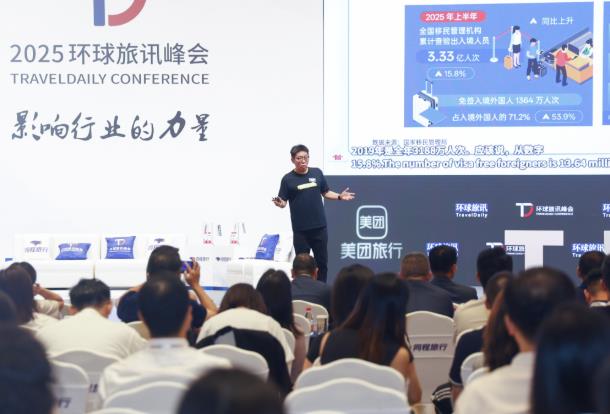ChinaTravelNews, Ritesh Gupta – The prowess of Chinese technology companies in shaping up new consumption patterns across media content, e-commerce etc.
It is a trend that travel intermediaries can't ignore. This underlines the need for the likes of online travel agencies, meta-search engines etc. to overcome the of limitation of current touchpoints in travel that only account for a fraction of one's attention span.
In fact, the traditional ways of selling travel aren't going to be applicable in the near future.
"Pure travel content is not enough," said Gordon Chen, CEO, Qunar.com, while speaking at the TravelDaily Conference in Shanghai.

Gordon Chen, CEO, Qunar.com
"(Today's) audience is looking for a "rich life" experience," highlighted Chen. "The "good life" redefines travel - the essence of travel is to broaden the mind." Chen's presentation indicated that travel brands need to dig deep into certain habits that are being fuelled by emerging apps and platforms, for instance, the popularity of "short videos and beautified selfies". He also mentioned that today travellers travel to eat, enjoy sightseeing, and live well.
So what does this signify for travel e-commerce? Of utmost importance is to understand how the decision-making is evolving. "Where is the traffic flowing?" probed Chen. Terming the likes of Douyin (TikTok), XiaoHongShu (Little Red Book), Meituan, Ziroom and OYO as star products, Chen mentioned that travel brands need to ascertain what is resulting in stickiness of these apps. From the travel sector's perspective, it is important to understand what is driving the decision towards a particular itinerary, he said.
Learning from innovators
Travel intermediaries need to drift away from core travel products such as flights and hotels. They can work around a range of offerings that fall in the travel booking funnel, and gradually look into everyday needs of their customers. There are ways in which travel e-commerce players can expand their capabilities to foray into different verticals.
One way is to build your own front-end, and integrate multiple best-of-breed services via APIs. Second, travel e-commerce companies can work a B2B offering via API to leverage the economy of scale resulting owing to the traffic or the volume of transactions being fuelled by the platform model of a partner.
Overall, it is important to ride on the popularity of today's platform economy. "The bigger any platform grows, more innovation results," said Chen.
As for trip planning, travel brands are already showing signs of delivering content the way audience is seeking.
It is increasingly becoming important for brands today to be a part of the interest-based content wave, which essentially means a series of videos are viewed at one go. Content from key opinion leaders or from other users of the app is based on the analysis of the usage of the app, and eventually algorithms showcase content that resonates best with the app users. A prime example is what travel brands are doing on an app like Douyin. Companies are already sponsoring content on live streaming platforms. Other paid campaigns include relying on programmatic ad buying to reach out to audience on the digital channels they are spending time on. Another way is to work with influencers and vloggers, who generate brand-related content. vloggers answer questions or encourage users to take action, share the content etc.




